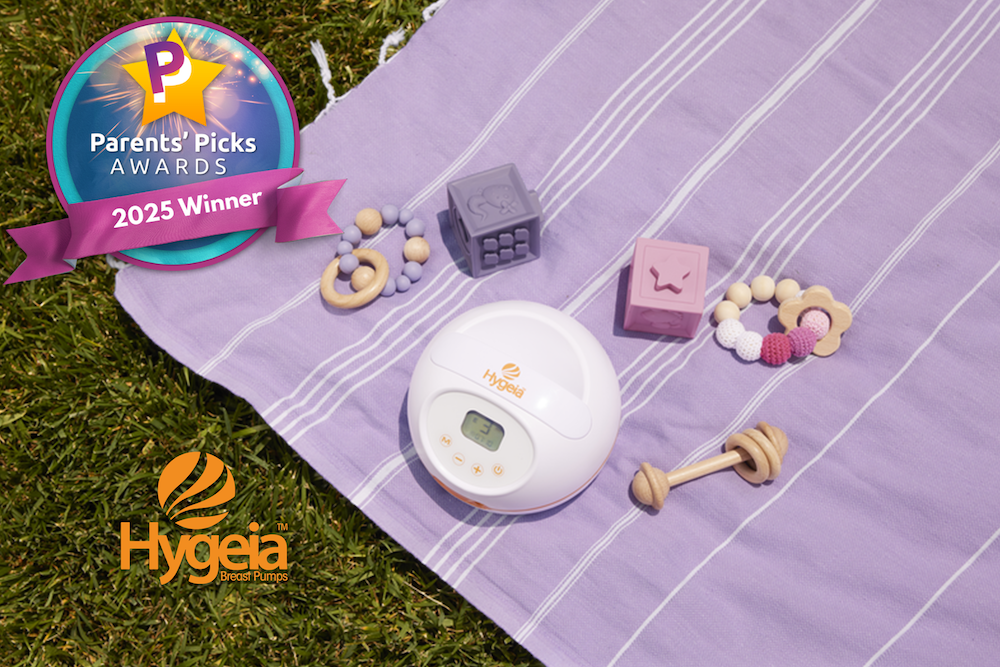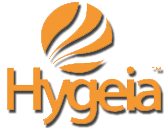
World Breast Pumping Day, observed annually on January 27th, is a special day to acknowledge the incredible dedication and effort of mothers who pump breast milk for their babies. Today we celebrate the strength, resilience, and commitment of the amazing women who prioritize the health and well-being of babies with breastfeeding.
Breast pumping empowers mothers to provide the invaluable benefits of breast milk to their babies even when they cannot be with them directly, but it is not achieved without great effort. It is a chosen responsibility motivated by love; it takes time and effort to learn how to pump well. Whether it’s returning to work, managing a busy schedule, or overcoming challenges related to breastfeeding, pumping mothers demonstrate incredible strength and determination.
History of Breast Pumping
It may surprise most to learn that breast pumps have been around since the 1800s, initially used for medical purposes like treating inverted nipples and assisting infants who were too small or too weak to nurse. It was 1991 before the first first electric breast pump was introduced. This significant shift was particularly impactful because mothers now had access electric breast pumps they could use in their own homes or anywhere of their choosing.
It was 2017 when Wendy Armbruster established World Breast Pumping Day to celebrate and support mothers who pump. Armbruster, a Certified Lactation Educator, had created an award-winning hands-free pumping bra, the PumpEase™, another tool that simplifies a mom’s ability to pump efficiently.
As some women may experience challenges with milk production, breast pumps can be a valuable tool. Pumping stimulates milk production and can help women maintain their milk supply, making it easier to feed their babies, whether they’re at work, traveling, or simply need a break.
Why It Matters
Breast milk truly matters in our world, and breast pumping plays a role in its availability. This liquid gold delivers optimal nourishment to infants around the world and promotes both the short and long-term health of babies and mothers. Breast milk helps give children the best start in life. It’s like an all-in-one of penicillin, therapy, and ice cream, but without breast pumping, many babies would never benefit from mother’s milk.
Breast Pumping Day is an opportunity to support and acknowledge the amazing job of all mothers. Without them, none of us would be here. Pumping moms greatly appreciate this day marked out for them and the extra effort they make to achieve the ability to breastfeeding.
How To Celebrate
Whether you are a currently pumping mother, you formerly pumped, you know someone pumping, or you just want to support the efforts made by others, there are ways to celebrate this special day.
Share your pumping story. If you were a pumping mom or you are new to pumping, today is a day to feel proud of your accomplishments. It is not an easy feat. Share your stories with others. If you are not a pumping mom, take time listen to someone else’s story.
Surprise a mom. Do you know a pumping mom? She may not even realize this special day exists, so surprise her in an unexpected way. Make her lactation cookies. Send a small gift. Help her with some household chores or drop off a meal. Even something as simple as an encouraging phone call or text will be impactful
Reach out. Be an advocate and supporter to the breastfeeding moms you know. You can offer words of encouragement or simply ask them about their journey. It is especially important to the moms who are having a hard time breast pumping or breastfeeding. Give them the opportunity to speak freely about their struggles and encourage them to seek support.
Supporting Your Breastfeeding Journey
At Hygeia Health, we understand the challenges and triumphs of the breastfeeding journey. We are proud to support mothers with our innovative breast pumps, designed to make pumping easier, more efficient, and more comfortable.
Our high-quality breast pumps are designed to get your one-of-a-kind milk to your baby. To apply for a 100%-insurance-covered breast pump, simply visit our website and fill out the application form. We’ll review your application and contact you with the next steps.

Hygeia Health is thrilled to announce that the Hygeia Express breast pump has been named a 2025 Parents’ Picks Awards winner for Best Baby Products & Toddler Products. This prestigious award recognizes the very best products for parents and children. Hygeia is honored to be included among such esteemed brands.
Exceptional Features Found in Hygeia Express
The Parents’ Picks Awards program rigorously evaluates products based on criteria like quality, safety, and ease of use. The Hygeia Express was recognized for its exceptional features, including:
Hands-free pumping: Greater comfort and flexibility
Hospital-grade strength: Powerful suction for efficient milk expression
Cordless design: Ultimate freedom and portability
Customizable modes: Personalized pumping experience
Access to lactation support: Support on the breastfeeding journey
The Value of Parents’ Picks Awards
Choosing the right products for your baby can feel overwhelming. Navigating the vast sea of options is often a daunting task for a parent. That’s where the Parents’ Picks Awards come in. This valuable resource provides expert recommendations based on rigorous testing and feedback from other parents, helping moms and dads make informed decisions for their little ones.
“With over 45 years of combined experience in the industry, we are the go-to source for parents and professionals seeking the best products for their children and families,” states Parents’ Picks Awards. “We guarantee that each product or service listed on [our] site comes highly recommended by our team of parents, kids, and experts.”
Hygeia Health Empowers Mothers
Hygeia Health shares Parent’s Picks Awards’ commitment to empowering mothers, particularly those on the journey of breastfeeding.
“We believe that every mother deserves access to high-quality products and support,” stated Kelly Cuellar, Vice President of Sales at Hygeia Health. “We are honored to receive this prestigious award and are dedicated to continuing to provide innovative and supportive solutions for breastfeeding mothers.”
Hygeia not only offers award winning pumps, but also helps moms get them at no cost. See if you qualify for a 100% insurance-covered pump today.

Nearly every part of parenthood has its ups and downs and breastfeeding is no exception. While it can be beautiful and rewarding, it is suddenly tough when your baby refuses the breast. It can be frustrating and disheartening. Just remember, you are not alone and there are strategies for overcoming the challenge of breast refusal.
This blog post will dive into the solutions to help you overcome this hurdle and get your breastfeeding journey back on track.
Understanding the Reasons for Breast Refusal
First, there are several reasons why a baby might refuse the breast, and it is important to understand where baby may be coming from in his or her refusal.
Painful latch: If your baby is experiencing pain while latching, they may refuse to breastfeed.
Tongue-tie or lip-tie: These conditions can make it difficult for your baby to latch properly and you may need to pursue treatment.
Illness: Do you lose your appetite when sick? Baby is no different. If your he or she is sick, they may be less interested in breastfeeding.
Distractions: Noise, light, or other distractions can interfere with breastfeeding. If you are trying to nurse with a cover, this can sometimes be problematic for baby’s attention also.
Stress or Overwhelm: Both you and your baby can experience stress, which can impact breastfeeding. It can impact baby’s ability to latch and your milk production.
Tips for Overcoming Breast Refusal
Identifying the possible cause of the issue can set you on track for which solution will help you overcome the obstacle.
Consult a Lactation Consultant: A lactation consultant can assess your baby’s latch and offer personalized advice.
Skin-to-Skin Contact: Spend quality time skin-to-skin with your baby. The direct physical contact can help calm them and encourage them to latch.
Try Different Positions: Experiment with different breastfeeding positions to find what works best for you and your baby.
Express Milk: If your baby is refusing the breast, you can express milk and feed it to them with a bottle or syringe or small spoon. With clean hands, you can even try using your pinky finger dipped in milk to feed baby.
Avoid Pacifiers: Using a pacifier can interfere with breastfeeding if your baby is already struggling with nursing.
Be Patient: Be patient and persistent. It may take time for your baby to adjust.
Tips for Returning To Breast after Bottle
Choose the Right Time: Try to breastfeed your baby when he or she is calm and relaxed, such as before a nap or bedtime.
Start Slowly: Begin by offering the breast for short periods, gradually increasing the duration as your baby gets used to it.
Express Milk and Offer It: Expressing some milk and offering it to your baby using a syringe, a spoon, or your finger as you hold them skin to skin can help them associate the taste of breast milk with your breast.
Be Patient: It may take several attempts for your baby to adjust to breastfeeding once he or she has taken to feeding from a bottle. Don’t get discouraged.
Hygeia Health: Supporting Your Breastfeeding Journey
At Hygeia Health, we know challenges like breast refusal are real for both first-time and seasoned mothers. Our high-quality breast pumps are designed to make pumping easier and more efficient so that, in the end, you have a way to get your one-of-a-kind milk to your baby.
To apply for a free breast pump, simply visit our website and fill out the application form. We’ll review your application and contact you with the next steps.
Remember, you’re not alone. With patience, persistence, and the right support, you can overcome breast refusal and enjoy the benefits of breastfeeding.

National Nurse Practitioner Week, observed annually in November, is a time to recognize and appreciate the invaluable contributions of some of our most prized healthcare workers: nurse practitioners.
These skilled professionals play a vital role in providing quality care to patients of all ages. This week, November 10-16, Hygeia is shouting praises to all nurse practitioners, especially those supporting the new moms around the world.
A Cornerstone of Healthcare
Nurse practitioners are advanced practice registered nurses (APRNs) with specialized education and training. They are qualified to diagnose illnesses, prescribe medications, and provide a wide range of healthcare services.
These highly qualified healthcare providers also play a vital role in supporting pregnant and breastfeeding mothers. With their advanced education and clinical experience, they offer comprehensive care, from prenatal check-ups to postpartum support.
Prenatal & Postpartum Care
By choosing a nurse practitioner for your prenatal and postpartum care, you can be confident that you’re receiving high-quality, compassionate care.
During pregnancy, nurse practitioners provide essential care, including:
Regular check-ups: Monitoring your health and baby’s growth.
Screening for complications: Identifying potential issues early on.
Education and counseling: Offering guidance on nutrition, exercise, and emotional well-being.
The crucial role of supporting breastfeeding mothers can often be played by a nurse practitioner. They can provide valuable advice and guidance on breastfeeding techniques, milk supply, and other common postpartum challenges.
Breastfeeding support: Helping you establish a good latch and troubleshoot any issues.
Postpartum check-ups: Monitoring your physical and emotional recovery.
Mental health support: Addressing postpartum depression and anxiety.
Supporting Healthcare Heroes
Let’s take this opportunity to thank nurse practitioners for their unwavering commitment to patient care. By recognizing their contributions, we can continue to improve healthcare access and quality for all and, most especially, new and breastfeeding mothers.

Newborn cuddles and breastfeeding bliss – that’s the dream, right? The breastfeeding first week sets the stage for your journey, and it can feel overwhelming. But don’t worry, mama, we’ve got your back! This guide will break down each day, offering tips and tricks for those precious early feedings.
Day 1 & 2: Colostrum Power!
Capture the Golden Hour: Your baby is going to be ready to eat upon arrival so take advantage! That first hour outside the womb is the perfect time to let baby’s natural instincts take over and find a perfect latch. Can’t take advantage of the “golden hour”? No worries. Just try to feed your baby as soon as possible.
Focus on Colostrum: In the first few days after birth, your body produces colostrum, a thick, yellowish liquid often called “liquid gold.” It may seem like a small amount, but it’s packed with antibodies to jumpstart your baby’s immune system. This “first milk” is perfectly designed for your newborn’s tiny tummy, promoting healthy gut development and even acting as a natural laxative. Learn more about colostrum in this post.
Frequent Skin-to-Skin Contact: Focus on skin-to-skin contact during these early feedings. This closeness not only helps regulate your baby’s temperature but also strengthens the emotional bond between you and your little one.
Feeding Cues: Your newborn’s feeding cues can be subtle at first, but look for signs like rooting, sucking motions, or fussiness. Aim for frequent, on-demand feedings, allowing your baby to determine how much milk they need. This frequent suckling stimulates your body to produce more milk, a process known as supply and demand.
Day 3 & 4: Latching Like a Pro
Mastering the Latch: Your nurses or the hospital Lactation Consultant may have helped you with latching initially, but you’ll want to focus on properly latching yourself. Your baby’s mouth should be wide open, with their chin and lower lip flanged out. Their tongue should be positioned over a large portion of your nipple and most of the areola.
Transitioning to milk: You will soon notice your milk begin to “come in,” which can feel full or tingly in your breasts. This is a good sign! Your body will produce a lot more milk than it did colostrum, so don’t be surprised. If you experience any pain or discomfort during feeding, don’t hesitate to seek help from a lactation consultant (IBCLC).
First outpatient appointment: You will likely have your first outpatient appointment scheduled before you even leave the hospital. Your doctor will check in on things like feedings and diaper changes, as well as baby’s measurements. This is the perfect time to address your questions and concerns.
Day 5 & 6: Finding Your Rhythm:
Feeding Routine: You’ve likely developed some type of feeding routine, but keep in mind that newborns still have small stomachs and need to eat frequently. Be prepared for 8-12 feedings or more in a 24-hour period.
Finding a Rhythm: Your feeding routine may be demanding but your body will be adjusting to its feeding duties. Your nipples should feel some relief from any initial tenderness and you should also be gaining confidence in latching. This should give you the opportunity to experiment with new feeding positions.
Hello Hormones: It’s quite possible that you’ll feel everything from sadness and overwhelm to joy in a matter of moments. It’s normal, thanks to hormones; however, postpartum depression and postpartum anxiety are also a common concern. Familiarize yourself with the signs of both and don’t be scared or ashamed to take it to your OB, MD or Lactation Consultant for the support you need.
Day 7: 1 Week!
Celebrate Your Success: You’ve conquered the first week of breastfeeding! Hopefully you’ve learned your baby’s feeding cues, mastered the latch, and established a breastfeeding routine, but if not don’t be discouraged. It’ll come soon.
Supportive Network: Having a strong support system can make all the difference. Consider connecting with a lactation consultant (IBCLC) or joining a breastfeeding support group. These professionals can offer valuable guidance on troubleshooting any challenges you may face.
Additional Support: Hygeia is also here for you! We offer a hospital-grade strength breast pump designed to mimic a baby’s natural suckling pattern for efficient milk expression.
Remember, mama, you are doing an amazing job! Breastfeeding is a beautiful and rewarding experience. By following these tips, seeking support when needed, and utilizing the right tools, you’ll be well on your way to a successful breastfeeding journey.





